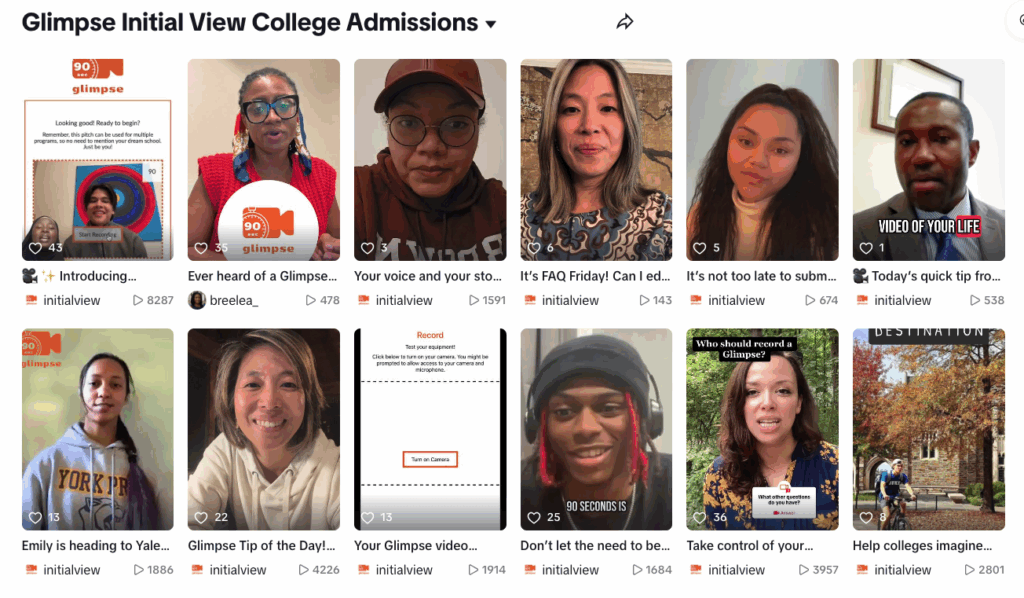Replacing the college admission essay with video is a breathtakingly dumb idea

According to an article in Washington Monthly, many schools are now requesting video essays in addition to — and perhaps in place of — the traditional essay on college admission applications.
In response, a growing number of colleges and universities are inviting applicants to submit a “video introduction” of themselves, in addition to the usual gauntlet of personal essays, academic transcripts, extracurricular activities, and test scores. Many of these schools are highly selective, like Brown, Duke, Vanderbilt, the University of Chicago, and Claremont McKenna. But lower-profile schools like Babson College in Massachusetts and Lawrence University in Wisconsin encourage video submissions too.
Proponents argue that video submissions are a cheat-proof antidote to the rising scourge of AI-written essays. “When people ask me why colleges are using this, I think there are three reasons: ChatGPT, ChatGPT, and ChatGPT,” says Terry Crawford, CEO of the video interview and admissions company InitialView. “Essays don’t really have value anymore—that’s just the reality.” Crawford moreover argues that videos are arguably an easy lift for the digital natives of Gen Z and beyond, many of whom already share their lives on social media. “Students are on Instagram, TikTok, Snapchat, and YouTube, and that is the way they communicate—via video,” he said.
“College essays don’t really have any value any more?” I don’t think so.
Why replacing written essays with video essays is a terrible idea
Keep the written essays. Here are just a few incontrovertible reasons why:
- College students need writing skills. All of them. There’s a reason why writing composition is still a requirement for nearly every freshman. Workers in the real world — whether they are marketers, coders, customer service reps, or wind turbine repair technicians — need to communicate clearly with their colleagues and the world at large. A graduate who can’t write is a liability. Eliminating the essay sends the wrong message.
- Students should use AI to help them write. In the real world, writers tap AI for research, to generate ideas, and to review their work. Why shouldn’t they do the same in writing college essays? After all, they used to get the same kind of help from guidance counselors, parents, and school admission coaches — what difference does it make if the coach is a human or a machine? A student who “writes” an unedited AI-generated essay is going to submit a boring, hackneyed essay. They should get rejected for writing a lame essay. Let’s free admissions staff from judging whether content was AI-generated, and instead ask them to judge whether it’s well-written, well-constructed, original, and genuine.
- Videos are too easy to create. “Videos are arguably an easy lift for the digital natives of Gen Z and beyond, many of whom already share their lives on social media.” Guess what — admissions essays are supposed to be hard. If students think communicating by video is what’s going to make them successful in college, they’re wrong. Corporate workers who can only communicate by video are primed to be time-wasting pretenders. Writing forces people to think harder in ways that video doesn’t.
- Affluent students will make better videos. Let’s not unfairly favor rich students. Which student is going to create the best-looking and best-constructed admission video? The one one with lots of financial resources for coaching, lighting, equipment, wardrobe, and editing, or the one barely scraping by with a hand-me-down computer? Judging candidates on the quality of their videos is an invitation to favor students from privileged backgrounds.
- Videos can be faked. Did AI help you write the video script? Did it clean up the editing? Did it generate a complete fake video? The idea that video is a format unsullied by AI interference isn’t true now, and will be far less true in year or two.
- Videos invite bias. A race-blind admission process is pretty hard to accomplish when a student’s face is part of the application package. And it’s worse than that. Videos make it easy for admissions staff who, consciously or unconsciously, favor students who are attractive and have better haircuts, and to disfavor those speak with an accent or have speech impairments. Writing levels the playing field. Video tilts it.
Please don’t do this
Dear admissions counselors at Brown, Duke, Vanderbilt, U Chicago, Babson, and anywhere else considering this: please don’t.
Writing is not a fad. It will be a necessary skill forever.
Don’t invite video into your admissions process. The students you accept based on sparkling videos aren’t the ones most likely to succeed.
Excellent argument! Thank you!